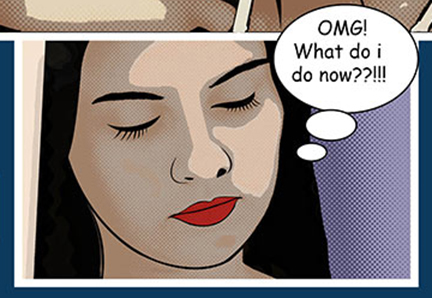 A NEW “Say No” campaign, launched by the Europol is being supported in Ireland in a bid to combat the sexual coercion and extortion of children.
A NEW “Say No” campaign, launched by the Europol is being supported in Ireland in a bid to combat the sexual coercion and extortion of children.
The online coercion and extortion of children is a form of digital blackmail, according to Gardai who have urged parents or victims to immediately contact them if they fall foul of ‘sextortion’.
The term refers to where sexual information or images are used to extort sexual material, sexual favours or money from children.
The “Say No” campaign is aimed primarily at children and young people who may be targeted online as victims of this form of extortion.
The centrepiece of the campaign is a 10-minute video, portraying two teenagers, a boy and girl, being exploited online either by a criminal organisation for money or by an individual online sexual offender seeking further sexual material. The video, includes advice as to how such crimes may be reported to An Garda Síochána.
The video and other helpful information may be found here
The Online Child Exploitation Unit (OCEU) at the Garda National Protective Services Bureau (GNPSB) offers the following advice:
• Protect your online life – use the maximum privacy settings.
• Be aware that people online may not be who they claim to be.
• Keep control online – do not share explicit or intimate images with anyone.
If you believe you are a victim of this type of crime, you should do the following:
1. Don’t share more, don’t pay anything.
2. Look for help. You are not alone.
3. Preserve evidence. Don’t delete anything.
4. Stop the communication. Block the person.
5. Report it to An Garda Siochana.
This activity is a crime. Adults as well as children can be victims.
To contact An Garda Síochána:
• Call in person to, or telephone your local Garda Station;
• In the event of an emergency dial 999/112 or
• Contact the Garda Child Sexual Abuse Helpline 1800 555 222.
It is best that you turn off the computer media (eg, Smartphone, tablet or laptop) on which the problem communication took place and have it available for examination by the Garda Síochána.
Crimes of this nature that are reported to the Garda Síochána, will be fully investigated.
Assistant Commissioner John O’Driscoll, who heads Special Crime Operations (SCO), within the Garda Síochána, said:
“The Garda Síochána is launching a “Say No” campaign which represents its participation in a new campaign against online sexual coercion and extortion of children that is led by Europol.
The ‘Say No’ campaign is aimed at providing advice to those persons who are victims or who in the future may become victims of crimes of this nature.
Posting or uploading explicit images on social media, or passing such imagery to others online, is extremely dangerous and can have devastating and lifelong consequences for children and their families.
Parents and children should be aware of the dangers involved and the Garda Síochána advise that explicit images should never be posted or shared online. Any child who receives a request for naked or explicit photographs should not share any images. We ask them to tell their parents and immediately make contact with the Garda Síochána who will advise them regarding how the matter should be handled.”








